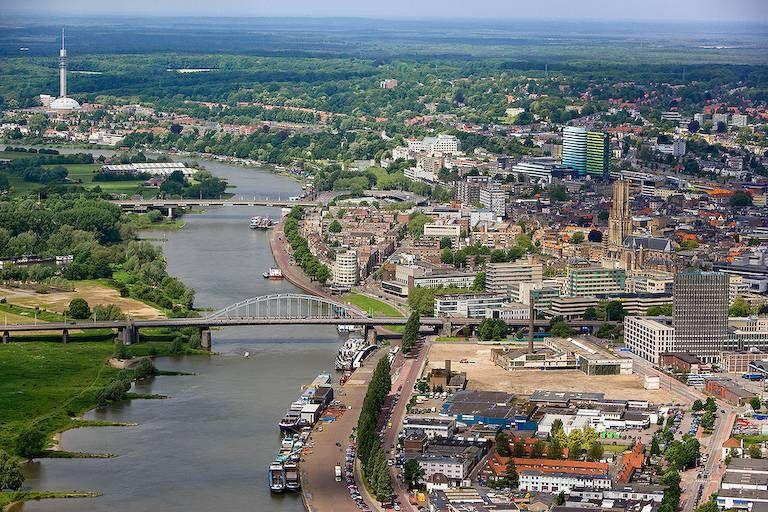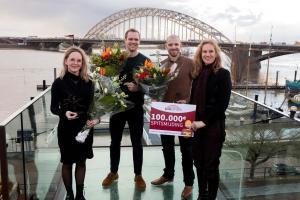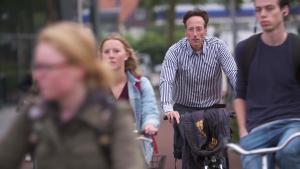What's The Rush? Sustainable Commuting in the Arnhem-Nijmegen City Region
Thinking differently about mobility
One year after the Green Deal is presented, the Arnhem-Nijmegen City Region and the Province of Gelderland will host the large international Polis Conference 2020 on sustainable mobility. The region will present itself on how we cross borders, on green public transport concession, new mobility services such as eHUBS, international train connections, cycling highways, mobility behaviour approaches and sustainable logistics. The region is a hotspot for (international) logistics and sustainable mobility solutions. It's perfectly situated between the European hinterland and the Netherland’s two most important ports: Schiphol airport and the Rotterdam harbour. One of the ambitions of the Arnhem-Nijmegen Region is to make inland shipping 'zero emission' so that it will also be climate neutral by 2050. In addition, the region is also working on a cleaner living environment in and around the cities. For example, a hydrogen-powered garbage truck will be running in Arnhem in mid-2020, one of the examples showing that this city is at the forefront of the energy transition.
Green deal-makers summit
The Polis Conference in December 2020 will feature plenty of discussions, presentations and materials on sustainable mobility practice. In addition, the region hopes to achieve this year a Green Deal-Makers Summit. During this part of the program, city and regional political representatives will engage in a dialogue with EU representatives, to show their side of the Green Deal, and discuss how the EU can support the local and regional level to perform even better.
2020 Annual Polis Conference - 2nd & 3rd December. For more information visit: https://www.polisnetwork.eu/2020-annual-polis-conference/
Relevant websites:
https://waalbrug.slimspitsen.nl/
https://nijmegen.slimspitsen.nl/
Authors: Arnout Smit is European Affairs Advisor and Climmy Hanssen Communications Advisor at Arnhem-Nijmegen City Region in the Netherlands. Contact the authors at arnout.smit@arnhemnijmegen.eu and climmy.hanssen@arnhem.nl
 Region of Arnhem-Nijmegen
Region of Arnhem-Nijmegen

